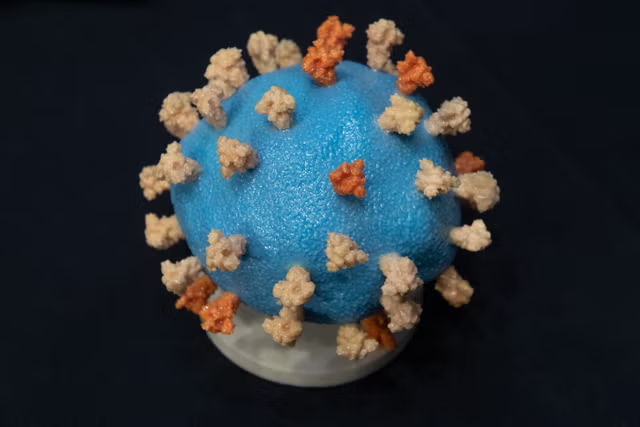Tea, berries, red wine and dark chocolate were all found to be associated with a lower risk of dementia in a study by scientists at Queen's University Belfast in Northern Ireland.
These foods contain high levels of flavonoids: compounds in plant foods that have been linked to antioxidant, anti-inflammatory and anti-cancer health benefits.
"As the worldwide prevalence of dementia continues to increase, it is important to examine how modifiable risk factors could reduce risk of dementia or contribute to prevention," first author Amy Jennings, Senior Research Fellow at Queen's, told Newsweek.
"Flavonoids are found in a range of different foods, including tea, berries, oranges, apples, red wine and dark chocolate, and our research highlights that consuming six additional portions of a range of these foods can lower dementia risk."
Jennings said her research provided an opportunity to "deliver a clear public health message."
Scientists at Queen's analyzed dietary data from U.K. adults aged 40 to 70, recruited between 2006 and 2010 as part of the Biobank project, and followed for an average of nine years.
They scored 121,986 participants on the flavonoids in their diet, and looked at the associations between these scores, the likelihood they would develop dementia, and risk factors such as genes, blood pressure and symptoms of depression.
Consuming an extra six servings of flavonoid-rich foods per day was associated with a 28 percent lower risk of dementia overall, the scientists found, and this was particularly true for people predisposed to dementia because of genetic or other risk factors.
The greatest reduction in dementia risk was observed in participants who consumed at least two of the following per day: five cups of tea, one glass of red wine, and half a handful of berries.
When the scientists removed tea, red wine and berries from their analysis, they found that other flavonoid-rich foods were not significantly associated with reduced dementia risk.
"Simple dietary changes of increasing intakes of commonly consumed foods and drinks may reduce dementia risk and the reductions in risk were more pronounced in those at high risk of dementia," said Jennings.
"Currently, there is no effective treatment for the disease, so preventive interventions to improve health and quality of life, and reduce social and economic costs, should continue to be a major public health priority," she said in a statement.
In the paper, the scientists wrote that flavonoids may help reduce dementia risk by reducing inflammation and improving blood flow in the brain.
However, they did raise questions about why red wine was associated with a lower dementia risk, as other research on red wine had found contradictory findings about whether a moderate intake was beneficial or detrimental to brain health.
And, the scientists wrote, they couldn't be sure that these associations were due to the flavonoids in these foods rather than something else—for instance, the alcohol in red wine may have had an impact.
This was also an observational study based on self-reported dietary information, so it cannot prove that flavonoids have a causal effect in reducing dementia risk, and the dietary information provided by participants might have some inaccuracies.
Furthermore, the U.K. Biobank participants may not be representatives of wider British or international populations.
Compared to the rest of the U.K., Biobank participants are generally healthier, less likely to have obesity, less likely to smoke, less likely to experience socioeconomic deprivation, and more prone to consume higher amounts of tea.
Still, the researchers said this study provided sufficient evidence to say that including small amounts of flavonoid-rich foods in the diet every day—particularly berries, tea and red wine—could be an effective way to reduce dementia risk in people predisposed to the disease.
Do you have a tip on a food story that Newsweek should be covering? Is there a nutrition concern that's worrying you? Let us know via science@newsweek.com. We can ask experts for advice, and your story could be featured in Newsweek.
Reference
Jennings, A., Thompson, A. S., Tresserra-Rimbau, A., O'Neill, J. K., Hill, C. Bondonno, N. P., Kühn, T., & Cassidy, A. (2024) Flavonoid-Rich Foods, Dementia Risk, and Interactions With Genetic Risk, Hypertension, and Depression. JAMA Network Open, 7(9). https://doi.org/10.1001/jamanetworkopen.2024.34136
Disclaimer: The copyright of this article belongs to the original author. Reposting this article is solely for the purpose of information dissemination and does not constitute any investment advice. If there is any infringement, please contact us immediately. We will make corrections or deletions as necessary. Thank you.



